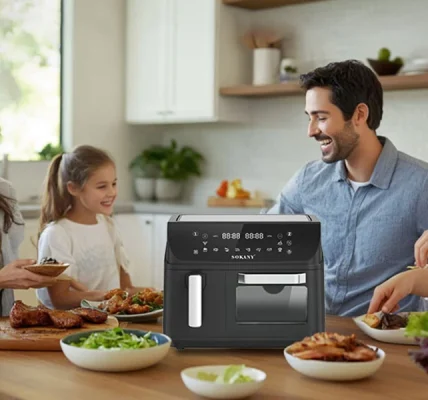Black kitchen sinks have surged in popularity, becoming a sleek and modern addition to contemporary kitchens. Their dramatic look and ability to hide stains make them a practical and stylish choice for many homeowners. But what exactly gives these sinks their captivating color and robust durability? The answer lies in the diverse range of materials used in their construction, each offering unique advantages and aesthetic qualities. Understanding the composition of a black kitchen sink is crucial for making an informed purchase that aligns with your needs and preferences.
Common Materials Used in Black Kitchen Sink Construction
Black kitchen sinks aren’t made from a single, monolithic substance. Instead, they’re crafted from a variety of materials, each treated to achieve that signature dark hue. Here’s a breakdown of the most prevalent options:
- Stainless Steel: Often coated with a PVD (Physical Vapor Deposition) finish, stainless steel provides excellent durability and resistance to corrosion. The PVD coating creates a hard, long-lasting black surface.
- Granite Composite: A blend of crushed granite and acrylic resins, granite composite sinks are known for their exceptional strength and resistance to heat, scratches, and stains. The black color is typically integrated throughout the material, ensuring a consistent look.
- Fireclay: Crafted from clay fired at extremely high temperatures, fireclay sinks are incredibly durable and resistant to chipping and cracking. A black glaze is applied before firing to achieve the desired color.
- Cast Iron: Similar to fireclay, cast iron sinks are coated with enamel, often black, to provide a smooth, non-porous surface. These sinks are known for their classic appeal and heat retention.
The Manufacturing Process: Achieving the Perfect Black Finish
The process of creating a black kitchen sink varies depending on the material. Let’s look at a few examples:
- Stainless Steel with PVD Coating:
- The stainless steel sink is first formed into its desired shape.
- It undergoes a cleaning and preparation process.
- The PVD coating, typically titanium nitride or a similar compound, is applied in a vacuum chamber. This vapor deposition process creates a thin, hard, and durable black layer.
- Granite Composite:
- Crushed granite and acrylic resins are mixed together.
- A black pigment is added to the mixture to achieve the desired color saturation.
- The mixture is poured into a mold and allowed to cure.
- The cured sink is then finished and polished.
- Fireclay:
- The fireclay sink is molded from a special clay mixture.
- It’s dried and then coated with a black glaze.
- The sink is fired at extremely high temperatures, fusing the glaze to the clay.
Advantages and Disadvantages of Different Materials
Choosing the right material for your black kitchen sink depends on your priorities. Here’s a quick comparison:
| Material | Advantages | Disadvantages |
|---|---|---|
| Stainless Steel (with PVD) | Durable, corrosion-resistant, relatively lightweight | Can be prone to scratches, PVD coating can wear over time |
| Granite Composite | Extremely durable, heat-resistant, scratch-resistant, stain-resistant | Can be heavy, more expensive than stainless steel |
| Fireclay | Highly durable, resistant to chipping and cracking, classic aesthetic | Can be very heavy, susceptible to staining if not properly maintained |
| Cast Iron | Classic look, excellent heat retention | Very heavy, enamel can chip, requires careful maintenance |
FAQ About Black Kitchen Sinks
- Are black kitchen sinks hard to keep clean? While they can show water spots and soap scum more readily than lighter sinks, regular cleaning with appropriate products will keep them looking their best.
- Do black kitchen sinks scratch easily? It depends on the material. Granite composite sinks are very scratch-resistant, while stainless steel can be more prone to scratches.
- Are black kitchen sinks more expensive? Generally, yes. The specialized finishes and materials used often result in a higher price point compared to traditional stainless steel sinks.
- Can I use abrasive cleaners on my black kitchen sink? It’s best to avoid abrasive cleaners, as they can damage the finish. Use mild soap and water or a cleaner specifically designed for your sink’s material.
Ultimately, the “best” material for a black kitchen sink depends on your individual needs and preferences. Consider your budget, lifestyle, and aesthetic goals when making your decision. By understanding the materials and manufacturing processes involved, you can confidently select a black kitchen sink that will add both style and functionality to your kitchen for years to come. Selecting the right black kitchen sink ensures you are satisfied with your decision for a very long time.

